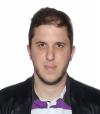What Causes Muscle Pain And Fatigue After Starting Diet Food?

Question: recently 3 or so weeks ago started new diet - cut out processed foods, and most dairy. primarily eating lean meats, nuts, veggies and fruits. after about ten days had some muscle pain, fatigue and light headless that seems to have abated with an increase in overall calories, especially sugar calories ( i.e. fruit/ honey) Have noticed significant reduction in resting heart rate after only a few weeks. Should I be worried about an electrolyte imbalance? or other cardiac issue? HR resting was in the 40's last night ( i would say previously i would have been in the 60's) and was in the 40's again this morning upon waking. I am an overweight female 36 years old. Current medications Pulmicourt, tecta, nasonex and 3 week course of prednisone for sinus inflammation.
Brief Answer:
The restricted diet - the cause to your present symptoms
Detailed Answer:
Hi,
I have gone through your medical history carefully and understood your concerns. All your symptoms are due to the new diet you have initiated where you cut out foods.
That is also associated with electrolyte imbalance and brady-arhythmia (reduced heart rate).
Further tests are needed to evaluate your actual health condition:
- electrolyte balance
- ECG
- Holter monitoring
- Cardiac ECHO
I also advise to :
- consume more fluids (mixed with oral rehydration salts)
- eat a more balanced diet, with less restrictions especially when it comes to dairies.
Hope it was of help!
Dr.Benard
The restricted diet - the cause to your present symptoms
Detailed Answer:
Hi,
I have gone through your medical history carefully and understood your concerns. All your symptoms are due to the new diet you have initiated where you cut out foods.
That is also associated with electrolyte imbalance and brady-arhythmia (reduced heart rate).
Further tests are needed to evaluate your actual health condition:
- electrolyte balance
- ECG
- Holter monitoring
- Cardiac ECHO
I also advise to :
- consume more fluids (mixed with oral rehydration salts)
- eat a more balanced diet, with less restrictions especially when it comes to dairies.
Hope it was of help!
Dr.Benard
Above answer was peer-reviewed by :
Dr. Chakravarthy Mazumdar


Thanks for the advice. have increased fluids and calories.
Follow up info - I have only noticed the lower HR at rest, not throughout the rest of the day. Is a low HR ONLY at rest typical of a particular health issue?
In the past year I have had cardiac-echo and ECG done with no results of note. Would these test need to be re-done now?
Are there any symptoms I should be on the look out for that might indicate a serious issue or worsening?
Thanks again
Follow up info - I have only noticed the lower HR at rest, not throughout the rest of the day. Is a low HR ONLY at rest typical of a particular health issue?
In the past year I have had cardiac-echo and ECG done with no results of note. Would these test need to be re-done now?
Are there any symptoms I should be on the look out for that might indicate a serious issue or worsening?
Thanks again
Brief Answer:
Bradicardia during night is normal & atypical for heart disease...
Detailed Answer:
Hi back,
What you have noticed is normal and isn't typical for heart disease. Heart rate is lower at rest and the lowest HR are during sleep (at night).
Yes the test (Echo and ECG) should be done now and every year as part of routine check up.
If you experienced something new you should contact your doctor for a proper evaluation.
Wish you health!
Dr. Benard
Bradicardia during night is normal & atypical for heart disease...
Detailed Answer:
Hi back,
What you have noticed is normal and isn't typical for heart disease. Heart rate is lower at rest and the lowest HR are during sleep (at night).
Yes the test (Echo and ECG) should be done now and every year as part of routine check up.
If you experienced something new you should contact your doctor for a proper evaluation.
Wish you health!
Dr. Benard
Note: For further queries related to coronary artery disease and prevention, click here.
Above answer was peer-reviewed by :
Dr. Chakravarthy Mazumdar

Answered by

Get personalised answers from verified doctor in minutes across 80+ specialties



